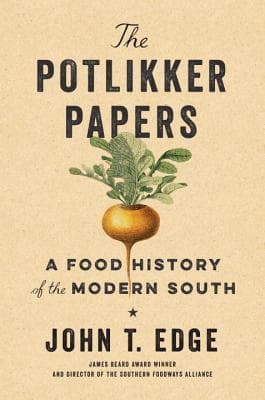
Book Review Summary: The Potlikker Papers
Introduction
The Potlikker Papers is a captivating book that delves into the history of Southern food and its significance in American culinary culture. Author John T. Edge explores the evolution of Southern cuisine over the last six decades, tracing how issues of race have shaped the region's culinary landscape. From the Civil Rights movement to the rise of immigration, this book offers a comprehensive and engaging account of Southern food's journey to becoming a shared culinary language for the nation.
About John T. Edge
John T. Edge, the author of The Potlikker Papers, is a renowned authority on Southern food. He has written extensively about the American South and its culinary traditions. Edge's work has been featured in numerous publications, including The New York Times, Garden & Gun, and Oxford American. He has received multiple awards for his writing, including three James Beard Foundation awards. Edge's passion for Southern food and his ability to bring its history to life make him a highly respected voice in the field.
Analysis of Views
-
Food as a Battleground: Many readers appreciate how food played a crucial role in the Civil Rights movement. The book highlights how cooks and maids fed and supported the Montgomery Bus Boycott, and how access to food and culinary traditions were central to achieving racial equality. This aspect of the book resonates with readers who value the power of food as a means of social change.
-
Evolution of Southern Identity: The Potlikker Papers covers various evolutions of Southern identity over the years. From the back-to-the-land movement in the 1970s to the rise of fast and convenience foods modeled on Southern staples, Edge narrates how the South's culinary landscape has evolved. Readers find this exploration of different eras and their impact on Southern food fascinating and enlightening.
-
Influence of Immigration: The book also discusses how immigration has shaped Southern cuisine in recent years. From Lebanese to Vietnamese immigrants, Edge profiles some of the extraordinary individuals who have contributed to the region's culinary renaissance. Readers appreciate how this aspect of the book highlights the diversity and inclusivity that have become integral to Southern food culture.
-
Potlikker's Significance: The concept of potlikker, a salvage food that has taken on new meanings in contemporary Southern cuisine, resonates with many readers. They find it fascinating how potlikker symbolizes both the resilience of the working poor and the creativity of chefs who have embraced it as a key ingredient in their dishes. This aspect of the book adds depth to the narrative and provides a unique perspective on Southern food's evolution.
-
Engaging Writing Style: John T. Edge's writing style is praised by many readers for its engaging nature. They find his storytelling ability to be captivating and his ability to bring history to life impressive. The book's narrative flows smoothly, making it an enjoyable read for those interested in both food and Southern culture.
Reasons for Recommendation
-
Comprehensive Exploration: The Potlikker Papers offers a comprehensive exploration of Southern food's history, from its roots in slavery to its current status as a trendsetting cuisine in American haute cuisine. Readers appreciate the depth and breadth of knowledge Edge brings to this subject matter, making it a valuable resource for anyone interested in understanding the evolution of Southern food culture.
-
Engaging Storytelling: John T. Edge's engaging writing style captivates readers from start to finish. His ability to weave historical events, personal stories, and culinary traditions into a cohesive narrative makes this book an enjoyable read for both casual readers and those with a deep interest in Southern food culture.
-
Food as a Cultural Language: The Potlikker Papers highlights how Southern food has become a shared culinary language for the nation. Readers find this aspect of the book particularly compelling as it underscores the importance of food in shaping cultural identities and fostering social connections. This book offers a unique perspective on how food can transcend geographical boundaries and unite people from diverse backgrounds.
Reasons for Not Recommendation
-
Lack of Recipes: Some readers express disappointment that there are no recipes included in the book. While The Potlikker Papers offers a wealth of knowledge about Southern food culture, those seeking specific recipes may find this aspect lacking. However, it should be noted that this book is primarily focused on exploring the history and evolution of Southern cuisine rather than providing a cookbook with recipes.
-
Dry Writing Style: A few readers mention that John T. Edge's writing style can be dry at times, which may affect their enjoyment of the book. While his writing is generally praised for its engaging nature, some readers find certain sections to be overly descriptive or lacking in clear thematic direction. This may be a matter of personal preference rather than an inherent flaw in the book itself.
Conclusion
The Potlikker Papers offers a captivating exploration of Southern food's history and its significance in American culinary culture. Author John T. Edge brings to life the evolution of Southern cuisine over the last six decades, shedding light on how issues of race have shaped its development. From food as a battleground during the Civil Rights movement to the influence of immigration on contemporary Southern cuisine, this book provides readers with a comprehensive and engaging account of Southern food's journey. With its captivating storytelling, exploration of cultural identity, and emphasis on shared culinary language, The Potlikker Papers is highly recommended for those interested in understanding the complex interplay between food and history in America's South.